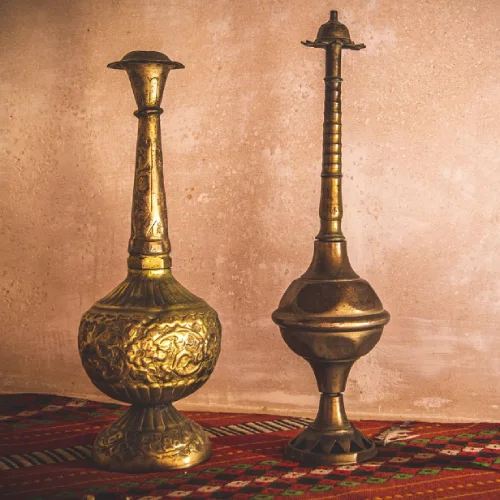If you’ve ever wandered through a hardware store or browsed antique decor, you’ve probably heard the terms “bronze” and “brass” tossed around. At first glance, they look similar—goldish, shiny, and vaguely “old-timey.” But here’s the thing: bronze and brass are NOT the same, and confusing them could lead to costly mistakes in DIY projects, manufacturing, or even antique restoration. Let’s break down their differences in plain English (no textbook jargon, promise!).

The Basics: What Are Bronze and Brass Made Of?
Both metals are alloys (mix of metals) primarily made of copper. But their “secret ingredients” set them apart:
Brass: Copper + Zinc. Sometimes includes lead or tin for specific properties.
Bronze: Copper + Tin. Modern versions might mix in aluminum, nickel, or phosphorus.
Why does this matter? The added metals change everything—from strength to corrosion resistance.
Spot the Difference: Color and Shine
Let’s play “Guess the Metal”!
Brass: Brighter yellow-gold, like polished jewelry. Over time, it develops a muted patina (think vintage doorknobs).
Bronze: Reddish-brown with a duller, almost rustic finish. Aged bronze often has a greenish tint (hello, Statue of Liberty!).
Pro tip: Hold them side by side. Brass looks “warmer,” while bronze feels “earthier.”
Performance Showdown: Which Is Stronger?
Your project’s success depends on picking the right metal. Here’s how they stack up:
1. Strength and Durability
Bronze: Tougher and more wear-resistant. Ideal for heavy-duty parts like ship propellers or bearings.
Brass: Softer and easier to shape. Perfect for decorative items or low-friction components (e.g., musical instruments).
2. Corrosion Resistance
Bronze: Handles saltwater and chemicals like a champ. Popular in marine hardware.
Brass: Good for freshwater but struggles in salty or acidic environments.
3. Conductivity
Brass: Better electrical conductor. Used in plugs, sockets, and bullet casings.
Bronze: Less conductive but excels in heat resistance (think industrial machinery).
Common Uses: Where You’ll Find Them
Still confused? Let’s see where these metals shine in real life:
Brass’s Claim to Fame
Musical instruments (trumpets, saxophones).
Decorative items (lamps, door handles, trophies).
Plumbing fittings and valves.
Bronze’s Big Roles
Ship propellers, underwater pipes, and marine fixtures.
Sculptures, bells, and historical artifacts.
Bushings, gears, and industrial machinery parts.
How to Tell Them Apart (No Lab Required!)
No X-ray vision? No problem. Try these hacks:
The Magnet Test: Brass is slightly magnetic (due to iron traces); bronze usually isn’t.
Sound Check: Tap the metal. Brass rings with a high-pitched “ping,” while bronze sounds deeper.
Weight It: Bronze feels heavier and denser than brass.
Check for Codes: Industrial pieces often have stamps like “CZ” (brass) or “PB” (lead-free bronze).
Why Mixing Them Up Is a Bad Idea
Imagine using brass screws on a boat—they’d rust within months. Or installing bronze plumbing in a high-moisture bathroom (overkill and pricey). Choosing the wrong metal can lead to:
Premature corrosion.
Structural failures.
Wasted money on unnecessary “upgrades.”
FAQs: Quick Answers to Burning Questions
Q: Can I use brass and bronze together?
A: Not recommended. They react differently to environments, risking galvanic corrosion.
Q: Which is more expensive?
A: Bronze usually costs more due to its tin content and industrial demand.
Q: Do they tarnish?
A: Both develop patinas over time, but brass tarnishes faster. Use lacquer to preserve shine.
Q: Are they recyclable?
A: Yes! Both are 100% recyclable without losing quality.
Final Verdict
Bronze and brass might look like twins, but they’re more like cousins with very different personalities. Brass is your go-to for affordability and aesthetics, while bronze is the rugged, heavy-duty problem-solver. Next time you’re shopping for materials, ask yourself: Do I need something pretty or something tough? Your answer will point you to the right metal.